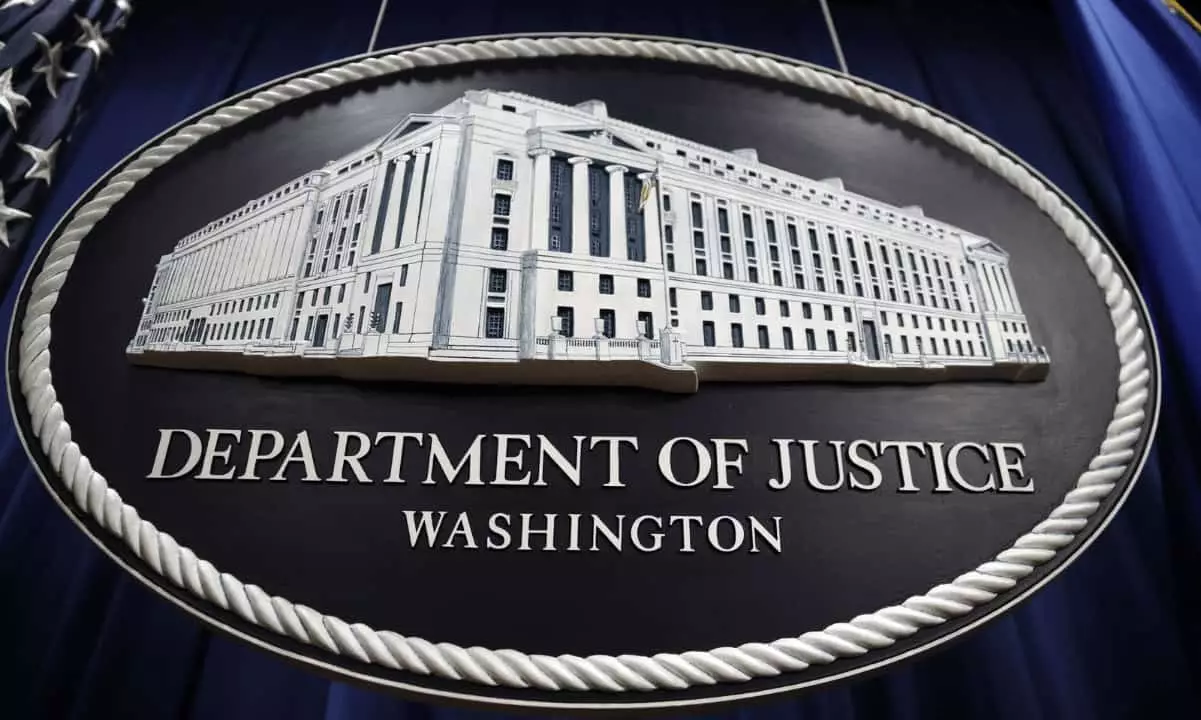The recent crackdown on the Russian-origin cryptocurrency exchange Garantex, with a reward of up to $6 million for information leading to the arrest of its leadership, exemplifies a broader shift in how authorities perceive and pursue illicit crypto activities. What is striking about this case, beyond the staggering $96 billion processed by the platform over six years, is the degree to which a seemingly mundane exchange became a hotbed for criminal enterprise. The sheer volume of transactions—many linked to terrorism, drug trafficking, ransomware, and money laundering—demonstrates an uncomfortable reality: that digital currencies, while revolutionary, are often exploited by bad actors to sow chaos and profit illegitimate enterprises.
This is not just a story about a rogue exchange; it is symptomatic of a deeper failure in the global financial system’s ability to prevent illicit funding. Garantex’s ability to operate in a largely unregulated environment, despite losing its license in Estonia, exposes gaps in oversight that criminals selectively exploit. Its continued operation, masked behind sophisticated obfuscation tactics designed to evade sanctions, paints a disturbing picture of a digital Wild West where enforcement often lags behind criminal ingenuity.
The Significance of U.S. and International Action
The United States’ aggressive response—offering maximum rewards and designating key executives—demonstrates a political and strategic shift toward accountability for crypto-facilitated crimes. While some might view this as heavy-handed, it reveals a firm understanding: the illicit use of crypto is not merely a law enforcement issue but a national security threat. By targeting Garantex and its affiliates, U.S. authorities are sending a stark message that they will no longer turn a blind eye to platforms that facilitate the darkest corners of cybercrime.
Additionally, the cooperation from Germany, Finland, and international agencies in seizing assets and freezing accounts signals an increasing willingness among developed nations to enforce sanctions and fight cybercrime across borders. The move to designate successor entities like Grinex indicates an understanding that criminal networks adapt quickly—just as one platform is shut down, another emerges, necessitating a persistent and coordinated effort.
The actions also reinforce a critical point: that enforcement agencies are beginning to understand that financial intelligence and swift interdiction are key tools in combating transnational organized crime—especially in the crypto space. The seizure of assets and arrests, including the detention of individuals in India, show the reach and seriousness with which authorities are approaching this challenge.
The Flaws and Future Risks of Crypto Anonymity
Yet, beneath these enforcement efforts lies a fundamental problem rooted in the underlying technology of cryptocurrencies: anonymity and decentralization. Despite attempts by Garantex to mask its dealings through complex infrastructure modifications, such as fake wallet addresses, the very design of many cryptocurrencies inherently favors concealment. This reality means that even with multilateral cooperation, some illicit actors will continue to operate in the shadows, especially if transparent regulation and compliance measures are not widely adopted by legitimate actors.
There is also an element of hubris in assuming that criminal networks will be easily eradicated through targeted strikes. Historically, criminal enterprises adapt swiftly—cybercriminals have shown extraordinary resilience when faced with law enforcement pressure. As such, the recent crackdown, while a necessary step, should be interpreted as part of an ongoing chess match—where catching a few players does not prevent the game from continuing.
Furthermore, the moral and political implications of such enforcement actions are complex. While these measures are presented as necessary for national security, they also caution about potential overreach, especially if regulations start to encroach on privacy rights of ordinary users who use crypto for legitimate purposes. The center-right, which often champions innovation balanced with security, must remain vigilant to ensure that efforts to combat crime do not stifle the legitimate growth and utility of digital currencies.
Implications for Crypto Regulation and Political Strategy
This episode underscores an urgent need for more pragmatic, balanced regulation—one that weeds out criminal misuse without crushing innovation. The U.S. approach, combining rewards with aggressive enforcement, is a step towards establishing clearer boundaries. It signals that crypto exchanges can no longer expect to operate in the shadows if they wish to avoid serious repercussions.
From a political perspective, this demonstrates a pertinent intersection between the free-market oriented libertarian instincts and the enforcement-driven policies favored by more conservative elements. An objective that combines protecting innovation with safeguarding national security aligns with a centrist pragmatic stance—recognizing that regulation, rather than outright bans, will be the most effective way forward.
The ongoing saga of Garantex also raises strategic questions about sovereignty and digital jurisdiction. As criminal elements exploit varying legal environments—shifting between Estonia, Russia, Kyrgyzstan, and beyond—the necessity for international cooperation becomes undeniable. The U.S. is showing that it refuses to be a passive observer in this digital arms race, setting a precedent for other nations to follow.
In the end, the fight against platforms like Garantex is not solely about punishing cybercriminals. It is about establishing a global norm that operationalizes accountability and transparency in the crypto domain—fundamental steps toward ensuring digital currencies do not continue to serve as fertile ground for shadowy transactions, and that the United States maintains its strategic dominance in the evolving landscape of cyber and financial warfare.

